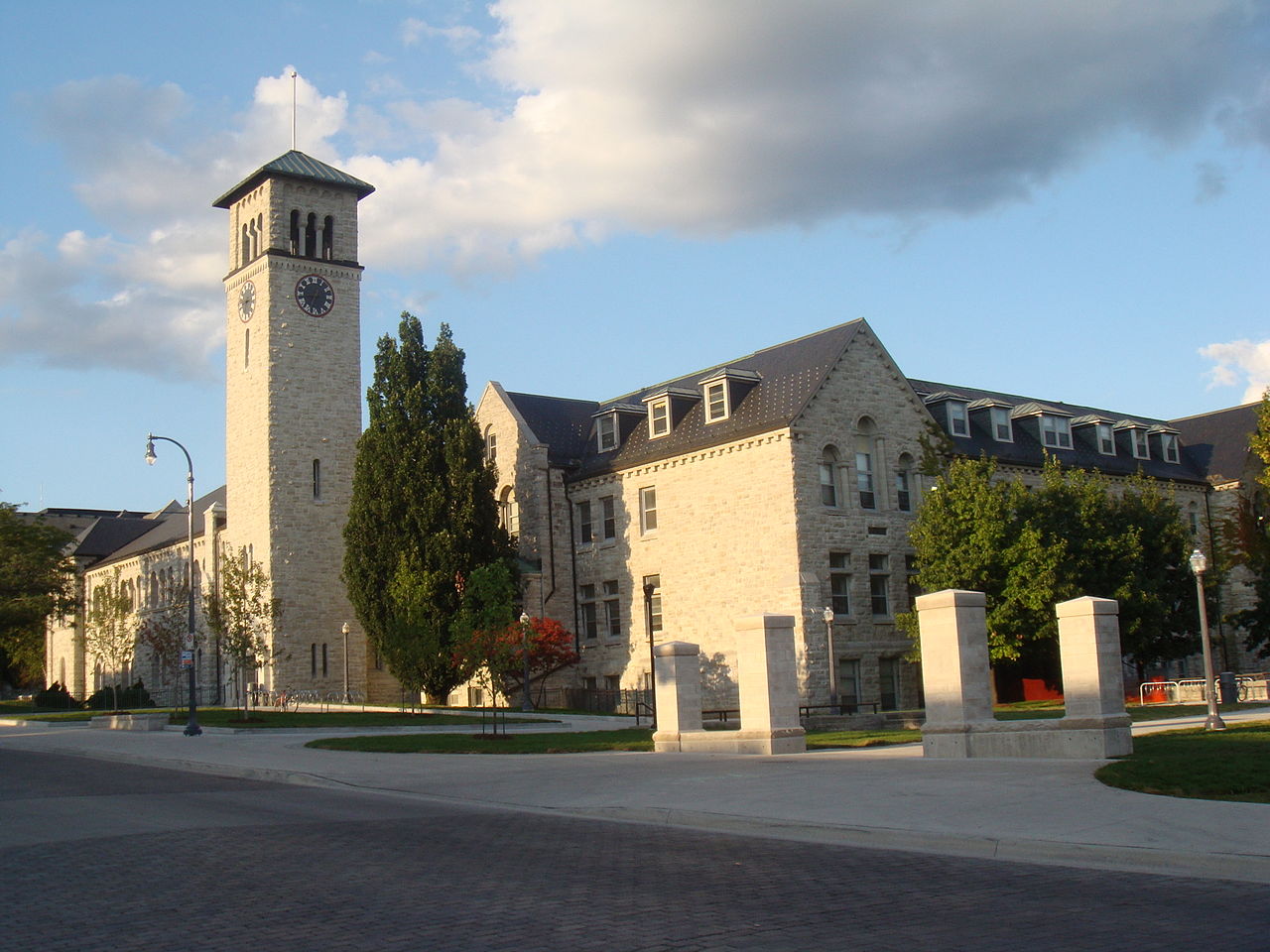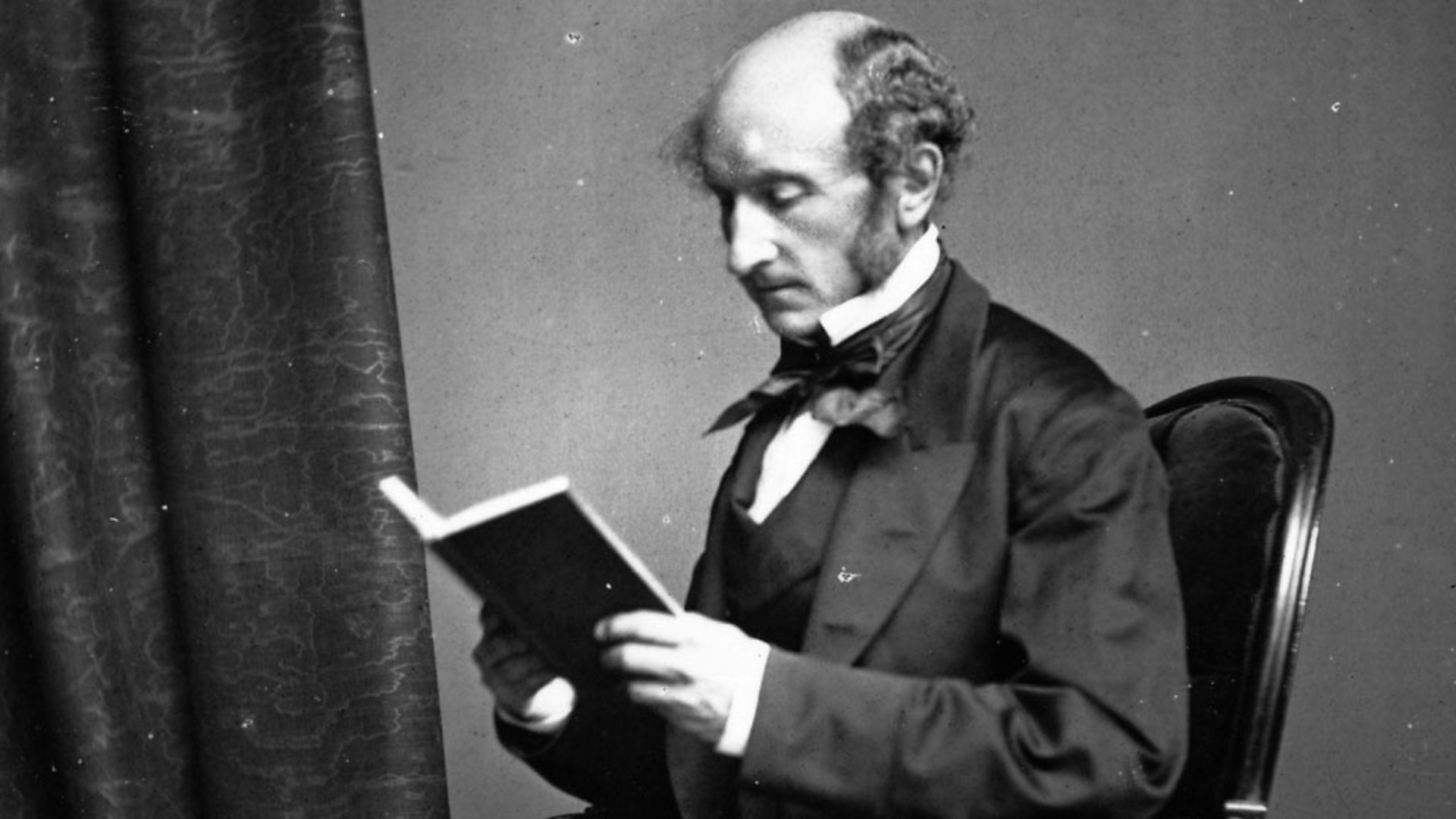Free Speech
The Meaning of Freedom
Inside the hall, Peterson’s remarks were briefly interrupted by two protesters who mounted the stage and unfurled a banner that read “Freedom To Smash Bigotry.”

“Lock them in and burn it down!” someone cried to scattered whoops of approval as protesters barricaded the doors with garbage bins. Someone else banged on the stained-glass window of the historic Grant Hall at Queen’s University until it broke. The building was completed in 1905. It used as a military hospital during the First World War and a meal hall for troops during the Second. “Shame On You!” the protesters chanted, and “No Freedom For Hate Speech!” and “Whose Campus? Our Campus!” and “Attending Is Complicity!” and the now-ubiquitous slogan “Fuck White Supremacy!”
The mob was protesting the appearance of University of Toronto psychology professor Jordan Peterson, who had been invited to deliver a lecture on compelled speech in Canada. It was the first talk in a series on individual liberty and its central role in liberal democracy and Western culture. Inside the hall, Peterson’s remarks were briefly interrupted by two protesters who mounted the stage and unfurled a banner that read “Freedom To Smash Bigotry.” They were booed and catcalled until they left, their fists in the air. Outside, they were greeted with cheers and applause.
22 years ago, at the age of 16, I joined the Canadian Armed Forces. I was discouraged at school, so I joined the reserves, and then the regular army as a tank driver, because all I ever wanted was to find a way to contribute to my country. While I was digging trenches and learning to survive the harsh conditions of war, my friends were at university learning how to be leaders.
Last week at Grant Hall, I sat and listened to Peterson while he spoke about the importance of free speech and the need for peaceful resolution to internal debates. He soldiered on, despite the pounding on the doors and window. The protester who broke the glass, it turned out, was not a student. She cut her hand and fled but was later arrested by police, who say she was carrying a garrotte.
As I left the lecture hall, protesters yelled “Shame!” They hurled profanities, gave me the finger, and I was punched.
In basic training, we were warned that some civilians may not like us because of our profession. Our instructors warned us that we would be called baby killers and other pejoratives. But we also learned that this was okay because we live in a country where you can address a member of the military, police, or government without fear of retribution. The military taught me that, although some civilians may voice disagreement, it was our duty to die in the service of freedom, no matter what that freedom may bring. It was the country we served, not a political movement. We fought for our friends, our neighbours, and our loved ones, and for our desire that Canada forever remain a free and prosperous nation. We fought for a place to call home.

But it wasn’t until 9/11 and the war in Afghanistan that I really understood why this country, its democracy, and commitment to liberty are so important. I witnessed first-hand countries where a public discussion of human rights would have been met with violence and death. With every bang on the glass, and at the moment I was hit, I was reminded of another time, when solving problems with violence was my job.
But it was in this singularly violent profession that I learned the most important lessons of my life. I learned that to be strong wasn’t good enough; you had to use your strength to help those who were unable to help themselves. I learned that it is better to build than to destroy, and violence, even amongst warriors, is always a last resort. I learned that Canada is a great nation because it fosters freedom and peace by encouraging all its citizens to be good to one another. It protects a person’s right to speak their mind, even if no one else agrees with them.
In the military, we armed ourselves to fight those who would laugh at the very notion of freedom. The army will always be there to defend the country from outside invaders. But the military cannot protect us from ourselves. We cannot rely on the army to fight our ideological battles. The soldier must sit on the sidelines and watch as citizens tear at each other, trying to outdo each successive protest by increasing the violent rhetoric and disruptive behavior.
In this realm, it is up to the scholars who understand the realities of totalitarian regimes and oppression, and who have studied war and death and their causes. They are the defenders of everything that is right and good about this great nation. Men and women like Jordan Peterson, Christina Hoff Sommers, Gad Saad, and Yaron Brook – thinkers who are doing everything they can to turn us away from the false promises of the West’s radical Left movements. It is also up to university leaders like those at Queen’s who did not cave to the illiberal views of those who tried to shut down the event.
At the moment, it often feels as if the academy is under siege from the ideological Left. University is an institution that I’ve always held in high regard, maybe even more than most because I knew it was something I could never do. Me, and people like me, will continue to sit on the sidelines, watching and nervously waiting to see what this new war on liberty will bring.
Aaron Pope is a combat veteran who served in Afghanistan, and a graduate of Algonquin College’s journalism program. He lives in Ottawa. You can follow him on Twitter @AaronLPope






